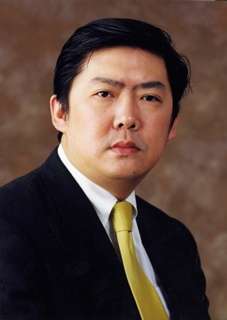|
Back
Winter Is Coming New York
David Geffen Hall, Lincoln Center
12/11/2016 - & December 10, 2016 (Greenvale)
Sergei Prokofiev: Violin Concerto No. 2 in G minor, Op. 63
Dmitri Shostakovich: Symphony No. 5 in D minor, Op. 47
Julian Rachlin (violin)
China Philharmonic, Long Yu (conductor)

L. Yu (© CAMI Music)
“What do these commissars know about music?”
Prokofiev to Shostakovich at their “re-education” hearing
The New York Philharmonic performed in China after their regular season ended this past summer and presented the China Philharmonic in one performance in reciprocation. Having no idea what to expect was just part of the frisson of this particular event.
Ironically this concert featured works by two composers who were routinely persecuted by the Stalinist regime. There were no less than three surprises before the orchestra even began to play. First, there were no protestors outside of Lincoln Center, no Falun Gong or other organized dissenters. This was unusual as major events in New York, such as an exhibit of Chinese art at the Javitz Center, have attracted these ardent groups for years now. Second, the first half of the concert was haunted by a man drinking beer out of a bottle. Although the ushers went to talk with him, he did not give up his libation (which he had purchased in the lobby) and continued to imbibe and talk very, very loudly throughout the first half of the concert. And third, the announced program was the Mendelssohn Concerto with Mr. Rachlin, Bartók’s Concerto for Orchestra, and a piece by the Chinese composer Chen Qigang!
The Prokofiev concerto was a little underpowered. The orchestra, who incidentally entered the stage by chair so that the first seat players were able to exhibit their honor and dominance from the outset, was acceptable but not impressive, sort of a mirror image of a second tier American ensemble, like the Houston or Baltimore symphonies (I used to call this “an ensemble from the provinces”, however readers unfamiliar with British slang found this description condescending). Friends have pointed out that I tend to “pick on” the horns a bit too much, but this group deserved the attention, flubbing many entrances both solo and tutti. The accompaniment in general was a little muddy.
However the soloist was excellent. Julian Rachlin impressed by articulating differing styles with ease and producing positively heavenly sounds from his 1704 “ex-Liebig” Strad. He performed his solo passages with deep intensity and magical articulation. In the first two movements the ensemble lagged behind just enough to seem disengaged, but the final Allegro ben marcato clicked impressively.
When I was a sixteen year old timpanist the Shostakovich seemed a terrific piece, but over the years it has lost quite a lot of its emotional impact, although contemporaneous Russian friends still extol its cathartic qualities that led at least for a time to optimism. Having had a lifetime to study many of his pieces, I must conclude that he is an interesting composer who was tangentially attached to some extremely affecting historical events, but whose body of work, much of which sounds surprisingly formulaic, puts him squarely in the second tier of twentieth century composition. Much of his later work, especially the symphonies and string quartets, were simply rehashes of each other. It is debatable how much of this decline was due to the inhuman repression that the sensitive musician suffered under the communists, but his overall body of work demonstrates that he was simply not in the same league as Prokofiev.
However the 5th is always a crowd pleaser and Mr. Yu (or is it Mr. Long?) pulled his forces together for an exciting performance. My worry that these musicians would be a bit too timid for such an intense landscape proved unfounded as the group, now augmented by harps and celeste and piano and huge percussion section, entered this emotional roller coaster and hung on for dear life. I’m sorry to report, but bound by journalistic ethics, that the horn section flubbed loudly on several occasions, but overall this was a dug in performance. Perhaps the playing was not beautiful when it should have been, but the overall level of emotional ardor was consistent and strong. The Largo was exceptionally eloquent, the strings the lifeblood of this ensemble at this stage of its development. As a former timpanist, I naturally waited for the finale, the most challenging piece in the standard repertoire. Maestro began the last movement at too fast of a tempo, making a bit of a jumble of the opening, but soon settled into just the right metronome marking combining emotional eloquence and straightforward propulsion. Perhaps the most exciting element in this famous finale is how it appears that Shostakovich is changing time signatures as the excitement mounts, but actually he is not, rather he creates this heartfelt illusion that the world is coming apart. When I was a performer, conventional wisdom was that a female could simply not master this particular timpani part. All praise to Liu Ying for proving the skeptics wrong.
An odd choice for an orchestra from China: a symphony that ends in the glorious glow of freedom.
Fred Kirshnit
|